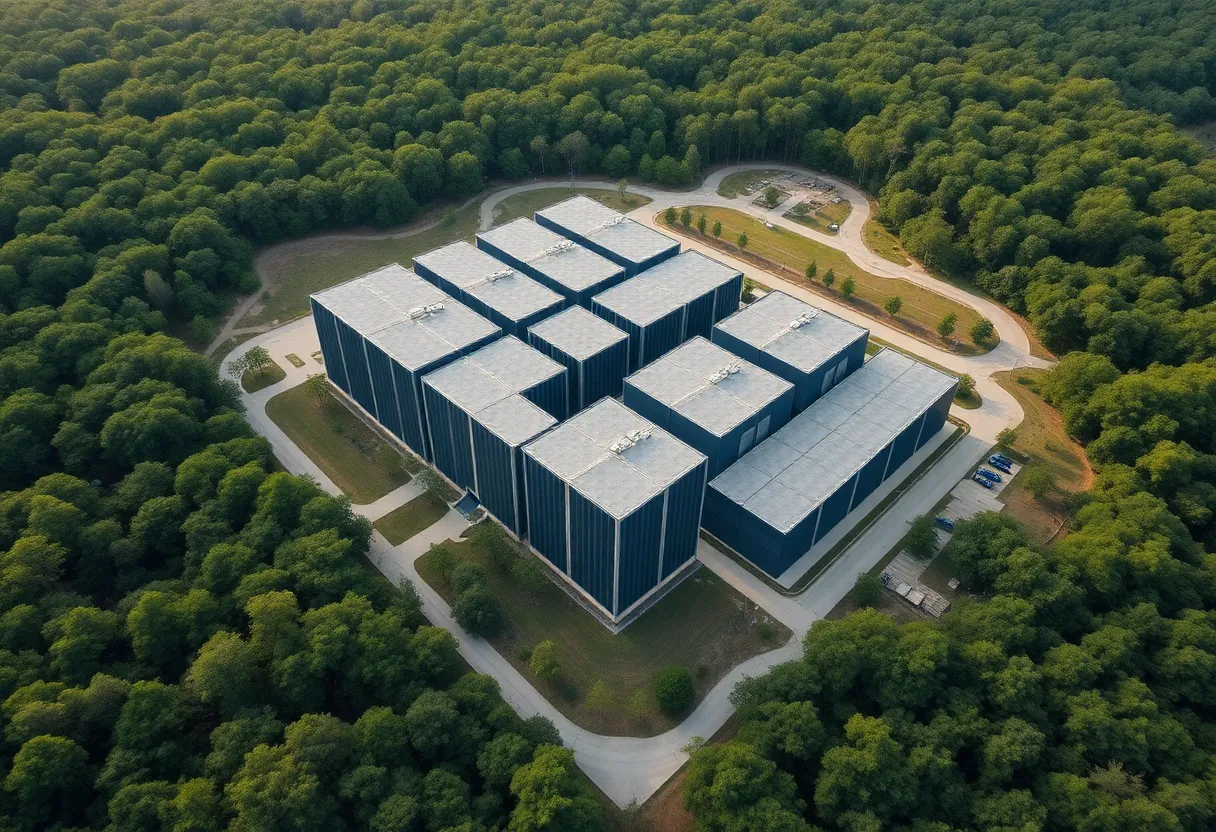News Summary
Georgia’s data center market has surged, becoming the second largest in the U.S., generating significant economic benefits yet raising environmental concerns. With 72 to 97 data centers operational and a contribution of $25.7 billion to the state’s GDP, the sector has also sparked debates over resource consumption. Critics label data centers as resource depleters, while local governments respond with restrictions. As public awareness increases, discussions about balancing growth with environmental sustainability are becoming vital for the state’s future.
Georgia’s Data Center Boom Sparks Economic Growth Controversy Amid Environmental Concerns
Georgia is experiencing a massive boom in its data center market, now ranked as the second largest in the United States, just behind Virginia. This rapid growth is accompanied by significant economic benefits, but it also raises serious environmental concerns among local communities.
There are currently between 72 and 97 data centers operating in Georgia, with many more in the pipeline. This influx has bolstered job creation and local tax revenues, particularly in rural areas where these centers are often located. In 2023 alone, Georgia’s data centers contributed $25.7 billion to the state’s Gross Domestic Product (GDP) and generated approximately $1.8 billion in tax revenue for both state and local entities.
The data centers currently support around 30,070 direct jobs and have a broader economic impact, totaling approximately 176,790 jobs according to analysis from PricewaterhouseCoopers. This substantial job creation is a significant factor in the state’s appeal for businesses and developers. In fact, new facilities announced this year will occupy around 30 million square feet and collectively represent a staggering $40 billion investment.
Contrasting Views on Economic Benefits and Environmental Impact
Despite these optimistic economic indicators, some critics argue that the benefits provided by data centers are insufficient to counterbalance the energy and water consumption they demand. Detractors have gone so far as to compare data centers to “locusts”, claiming they deplete critical resources without providing adequate returns for local communities.
In response to these concerns, several local governments have started imposing restrictions or complete bans on new data centers. The Atlanta City Council has recently approved a temporary ban on data centers from certain neighborhoods and has mandated special-use permits for any new developments. Such measures indicate a growing apprehension about potential noise pollution and environmental consequences linked to these facilities.
Georgia’s General Assembly attempted to address concerns over the rapid growth of data centers by passing legislation aimed at temporarily suspending a sales tax exemption that previously attracted data centers to the state. However, this measure was vetoed by the governor, leaving local governments to contend with the implications of continued expansion.
Addressing Energy and Water Demands
State officials are actively working on strategies to manage the significant energy and water demands posed by data centers and other large electric customers. Proposed legislation aims to ensure that the costs associated with these facilities are not passed on to residential and small business customers, alleviating some pressure from local communities.
While concerns about resource exhaustion and heavy consumption persist, advocates for data centers point to the construction jobs that are tied to these projects. These jobs often span several years, providing ongoing employment opportunities. Additionally, since data centers do not require extensive local infrastructure such as roadways and schools, their economic footprint is considered less burdensome compared to other forms of development.
Public Opinion and Future Outlook
As public awareness of the negative impacts associated with data centers grows, a notable pushback is being observed in Georgia. Residents and local leaders are increasingly vocal about their concerns, prompting discussions about a balanced approach to economic growth that also respects environmental sustainability.
Despite the controversies, data centers remain critical to meeting the rising demand for cloud-based computing, artificial intelligence, and various other technological applications that are essential for driving modern economic growth. Moving forward, finding a way to reconcile these growth imperatives with environmental responsibilities will be crucial for Georgia’s development landscape.
Deeper Dive: News & Info About This Topic
Additional Resources
- Savannah Now: Data Centers Boosting Tax Revenue or a Drain?
- About Amazon: AWS Data Centers Locations
- Data Center Frontier: Jobs in Data Centers
- AZ Central: Data Centers and Arizona’s Economy
- Tallahassee: Seizing the Moment on Data Centers in Florida
- Wikipedia: Data Center
- Google Search: Data Centers
- Google Scholar: Data Centers
- Encyclopedia Britannica: Data Center
- Google News: Data Centers
Author: Construction FL News
The FLORIDA STAFF WRITER represents the experienced team at constructionflnews.com, your go-to source for actionable local news and information in Florida and beyond. Specializing in "news you can use," we cover essential topics like product reviews for personal and business needs, local business directories, politics, real estate trends, neighborhood insights, and state news affecting the area—with deep expertise drawn from years of dedicated reporting and strong community input, including local press releases and business updates. We deliver top reporting on high-value events such as the Florida Build Expo, major infrastructure projects, and advancements in construction technology showcases. Our coverage extends to key organizations like the Associated Builders and Contractors of Florida and the Florida Home Builders Association, plus leading businesses in construction and legal services that power the local economy such as CMiC Global and Shutts & Bowen LLP. As part of the broader network, including constructioncanews.com, constructionnynews.com, and constructiontxnews.com, we provide comprehensive, credible insights into the dynamic construction landscape across multiple states.





